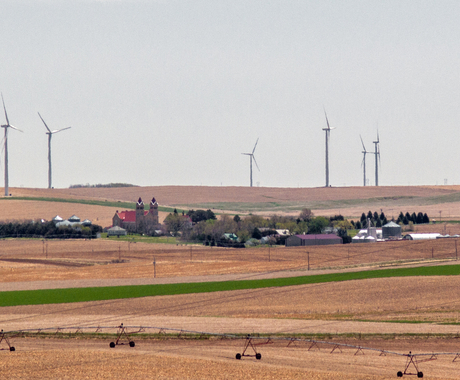Erik Hatlestad, energy democracy program director of CURE, [email protected], 320.905.1543; Liz Veazey, network director of We Own It, [email protected], 919.619.5964; or Rhea Landholm, brand marketing and communications manager of Center for Rural Affairs, [email protected], 402.687.2100 ext 1025
LYONS, NEBRASKA – With U.S. wind and solar capacity expected to grow by 6 percent and 14 percent, respectively, in 2019, a new report says it would be cheaper for many electric cooperatives to retire their existing coal plants in favor of renewable energy generation. The report, authored by the Center for Rural Affairs, CURE, and We Own It, was released today.
“Rural Electrification 2.0: The Transition to a Clean Energy Economy” explores cost savings to the U.S. associated with moving away from coal-based power generation, while also exploring contracts and other factors which put electric cooperatives in significant debt. In addition, the report presents strategies for governments and cooperatives to restructure their debt and provides advice for those seeking to transition away from coal-based power generation.
“Rural communities will be better positioned to realize energy independence once current debt on existing coal plant infrastructure is eliminated,” said Erik Hatlestad, energy democracy program director at CURE. “This, in addition to investments in clean energy and energy efficiency, would help electric cooperatives plan for the future and serve their members more effectively.”
Highlighting leadership on renewable energy investment, the report recognizes electric cooperatives that have set ambitious renewable energy generation targets. For example, Central Iowa Power Cooperative announced a 100-megawatt solar project in December 2018 that would be largest in the state.
“Cooperatives commit to seven principles including democratic member control, concern for community, as well as values of equity, equality, solidarity, social responsibility, and more,” said Liz Veazey, network director at We Own It. “As we work to mitigate the impacts of climate change, adopting more renewable energy projects will provide new tax revenue and jobs for rural communities while reducing emissions.”
To learn more, or to download the report, visit cfra.org/publications.




